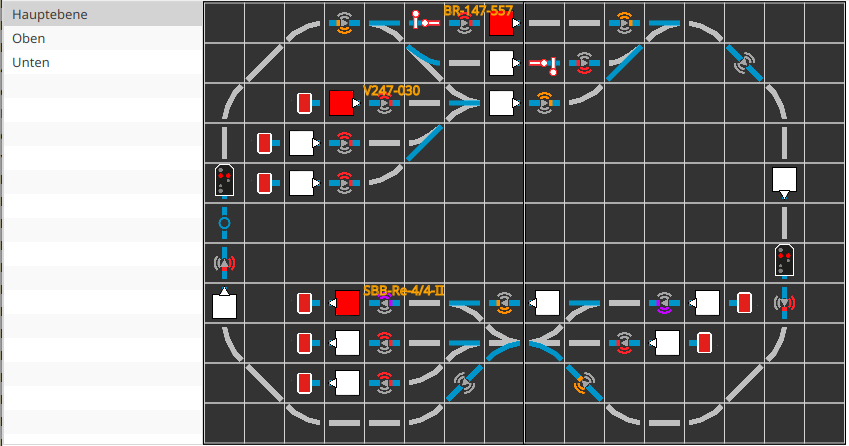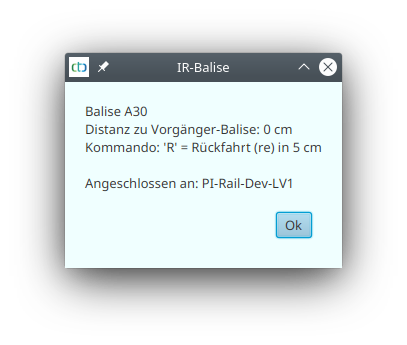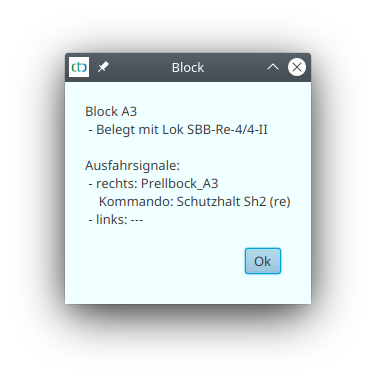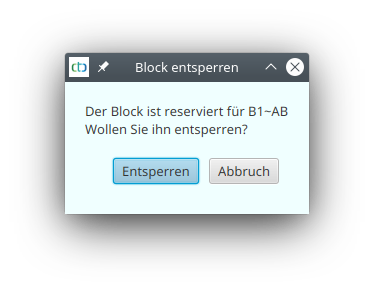In the CTC PC apps, you will find the track diagram at the bottom of the window, on tablets and smartphones as a tab with the track symbol.

You can learn how to create a track diagram in Chapter 6 - Track Diagram Interlocking.
On the left side of the view, you can see a list of all available track sections. In the example, the model railway is divided into a left (top) and right (bottom) half. The “main level” combines both halves and is therefore suitable for tablets and PCs. “Top” and “Bottom” are more suitable for narrower smartphone displays.
All blue track pieces are associated with an action. This can be either a switching action (turnouts, signals, …) or a sensor (balise, block, …).
Turnouts and Signals
The symbols for turnouts and signals are identical to those on the switchboard. The symbol reflects the current state of the turnout or signal. If the symbol is coloured orange, it is reserved for a route and cannot be switched.
When you click on a turnout or signal, it will switch to the next state, according to the order shown on the switchboard from left to right.
In the PC app, you can open the module’s Config-Dialog, where the turnout or signal is configured, by right-clicking.
Sensors
Classical sensors do not currently indicate any state.
In the PC app, you can open the module’s Config-Dialog in which the sensor is configured by right-clicking.
Balises
Balises indicate the state of the balise through coloured symbols. The small arrow in the center of the symbol indicates the clockwise direction (arrowhead is on the right). The symbol applies to the direction of travel indicated by the coloured arcs on the right side (in the direction of travel).
| Symbol | Color | Commands | Meaning |
 |
gray | Balise is not assigned or the corresponding CTC module is not active. | |
 |
gray | - | Balise is active, but does not send a command to the locomotive. |
 |
green | ‘F’, ‘f’ | Balise is active and sends the command for free travel. |
 |
yellow | ‘W’, ‘w’, ‘L’, ‘l’ | Balise is active and sends the speed limit command. |
 |
orange | ‘M’, ‘m’ | Balise is active and sends the slow down command. |
 |
red | ‘H’, ‘h’, ‘S’, ‘s’, ‘T’, ‘t’, ‘E’, ‘e’ | Balise is active and sends a stop command. |
 |
purple | ‘R’, ‘r’ | Balise is active and sends the reverse command (from CTC-App 4.08) |
Details about the commands can be found in the section “Commands for Locomotives/Signals” in Chapter 4.5 - Edit Script.
In addition, a balise can be clicked to find out its exact state:

Blocks
Blocks are represented as colored filled rectangles. The small arrow at the edge of the rectangle indicates the clockwise direction (arrowhead is on the right).
| Symbol | Colour | Meaning |
 |
grey | Block is not assigned or the associated CTC module is not active. |
 |
white | Block is active and not occupied |
 |
yellow | Block is active and has been reserved by a route |
 |
red | Block is active and occupied by a locomotive |
A block can be clicked to find out its exact status:

On the PC, a reserved block can be released again by clicking with the right mouse button:




